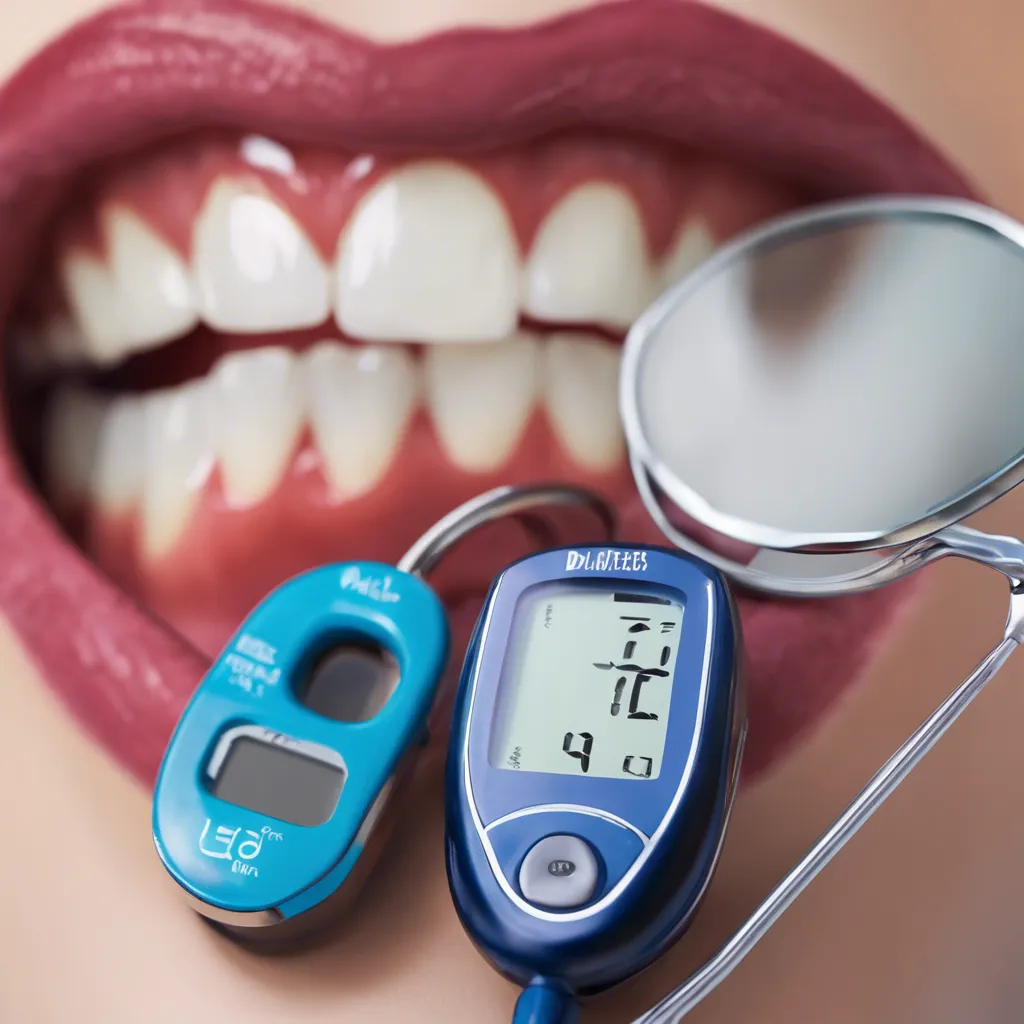Table of contents
- Exploring the Connection Between Diabetes and Oral Health
- Managing Oral Health Issues Caused by Diabetes
- Oral Health Management: Essential Tips for Individuals Living with Diabetes
- The impact of a healthy diet on oral health in individuals with diabetes
Diabetes and oral health are often interrelated, with one impacting the other in various ways. This article delves into the connection between diabetes and oral health, exploring the potential risks and complications that individuals with diabetes may face when it comes to maintaining good oral hygiene. Understanding this link is crucial for effective disease management and overall well-being.
Exploring the Connection Between Diabetes and Oral Health
Did you know that there is a strong connection between diabetes and oral health? High blood sugar levels can have a significant impact on the health of your mouth. Let's dive into the details:
- Periodontal Disease: Diabetes can make you more prone to gum disease, also known as periodontal disease. This occurs when high blood sugar levels weaken the blood vessels in the gums, making them more susceptible to infection. The gums may become swollen, red, and bleed easily.
- Delayed Healing: High blood sugar levels can also hinder the healing process. If you have diabetes and undergo oral surgery or experience a dental injury, it may take longer for your mouth to heal properly.
- Thrush: Diabetic individuals are more prone to yeast infections such as oral thrush. This condition causes white patches to appear on the tongue, gums, and insides of the cheeks. It can lead to discomfort and difficulty in swallowing.
- Dry Mouth: Diabetes can cause a decrease in saliva production, leading to a condition called dry mouth. This can result in a dry and uncomfortable feeling in the mouth, an increased risk of tooth decay, and difficulty speaking and swallowing.
- Tooth Decay: High blood sugar levels create an ideal environment for bacteria to thrive in the mouth. The excess sugar feeds the bacteria, increasing the risk of tooth decay and cavities.
- If you have diabetes, it is crucial to maintain good oral hygiene practices, visit your dentist regularly, and keep your blood sugar levels under control. By doing so, you can minimize the impact of high blood sugar on your oral health and ensure a healthier mouth.
Managing Oral Health Issues Caused by Diabetes
Gum disease and inflammation are common oral health issues often seen in individuals with diabetes. Proper management of diabetes can help reduce the risk and severity of these conditions.
Oral Health Management: Essential Tips for Individuals Living with Diabetes
Maintaining good blood sugar control is crucial for individuals living with diabetes to prevent oral health complications.
- Diabetes and oral health are closely linked. High blood sugar levels can increase the risk of gum disease, tooth decay, and other oral health problems.
- Poor blood sugar control can lead to dry mouth, which can in turn increase the risk of cavities and oral infections.
- Uncontrolled diabetes can impair the body's ability to fight off infection, making gum disease more difficult to treat.
- Regular dental check-ups are essential for individuals with diabetes to monitor their oral health and detect any potential complications early on.
- A balanced diet low in sugar and high in nutrients can help maintain stable blood sugar levels and promote good oral health.
- Good oral hygiene practices, such as brushing teeth twice a day and flossing daily, are even more important for individuals with diabetes.
- Managing stress and quitting smoking can also contribute to better blood sugar control and improved oral health.
- Working closely with healthcare professionals, such as dentists and endocrinologists, can help individuals with diabetes develop personalized oral health plans and manage their condition effectively.
The impact of a healthy diet on oral health in individuals with diabetes
Maintaining a healthy diet is crucial for individuals with diabetes in order to manage their blood sugar levels and prevent complications. When it comes to oral health, one important aspect is avoiding sugary foods and beverages. Consuming excessive amounts of sugar can increase the risk of tooth decay and cavities. This is especially concerning for individuals with diabetes, as they are already at a higher risk of oral health problems. By staying away from sugary foods and drinks, individuals with diabetes can help protect their teeth and maintain good oral hygiene.
In conclusion, there is a strong link between diabetes and oral health. Diabetes can increase the risk of gum disease and other oral health problems. Similarly, poor oral health can make it difficult to control blood sugar levels, exacerbating the symptoms of diabetes. It is crucial for individuals with diabetes to maintain good oral hygiene practices and regularly visit their dentist for check-ups and treatment. By addressing both diabetes management and oral health care, individuals can improve their overall well-being and reduce the risk of complications associated with these conditions.
Frequently asked questions related to diabetes and oral health
How does diabetes affect oral health?
Diabetes can increase the risk of gum disease and tooth decay. It can also slow down the healing process and make it harder for the body to fight off infections.
Are there any specific dental treatments for diabetics?
Diabetics may require more frequent dental cleanings and check-ups. They may also need special mouth rinses or prescription medications to manage oral infections.
What are the symptoms of oral health problems in diabetics?
Common symptoms include dry mouth, frequent infections, bad breath, loose teeth, and slow healing of wounds in the mouth.
Can treating gum disease help with diabetes management?
There is evidence to suggest that treating gum disease can improve blood sugar control in diabetics. Managing oral health can be an important part of overall diabetes management.
How can diabetics maintain good oral health?
Diabetics should brush their teeth at least twice a day, floss daily, and visit their dentist regularly. They should also control their blood sugar levels and avoid smoking.







